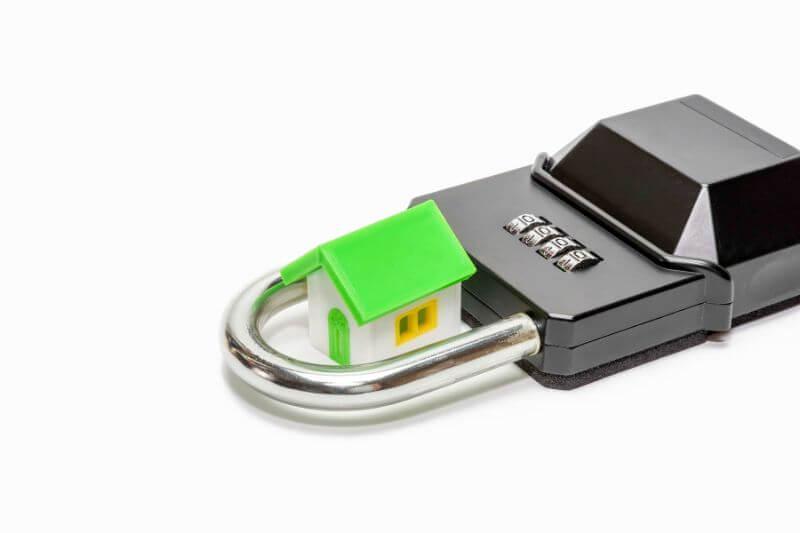As a Notary, real estate is a BIG part of my job. But, oftentimes my phone rings, I answer, and on the other end of the line is an excited and slightly nervous voice confessing: “This is my first time buying and… I guess I need you for something?”
Most Realtors and Mortgage Brokers advise their clients that they need a Notary or a lawyer to handle their “conveyancing,” to “process paperwork” or to “handle the legal stuff”. Identifying the need for Notary is critical, but, usually, there is no true understanding as to why the need is there; for many people, a Notary’s role in real estate is shrouded with mystery.
So, in this article, we will de-mystify the “why” by highlighting a Notary’s role in the three most common types of real estate transactions: purchases, sales, and mortgages. (Note: to learn more about a Notary’s role in estate and personal planning, click here).
Purchase
When you sign a contract (to purchase property), you haven’t actually bought the property yet. You’ve agreed to buy the property upon certain terms and conditions – price, date, subjects, etc. Upon passing the Rescission Period and removing subjects the contract becomes “firm” or legally binding. All this is to say that you will complete the deal in accordance with your contract.
A Notary’s role in a purchase transaction is to help the Buyer actually bring the purchase to completion.
This includes:
- Talking to the Buyer to:
- collect personal information
- identify and confirm circumstances that may warrant additional attention (such as exemptions from property transfer tax (PTT) or a need to file registrations with the Land Owner Transparency Registry (LOTR))
- Contacting other parties to the transaction:
- Buyer’s Realtor (Selling Agent) and Seller’s Realtor (Listing Agent) – to obtain a copy of the Contract and commission details.
- Mortgage Broker, Bank, or Lender – to obtain mortgage instructions and request mortgage funds be deposited into the Notary’s trust account.
- Municipality – to obtain a property tax certificate and confirm that all historical payments have been made by the current/ previous property owners.
- Strata Corporation / Property Management Company – to obtain strata information like monthly strata fees, move-in costs, and levies, and to order Strata documents (Form B Information Certificate and Form F Certificate of Payment).
- Insurance companies – to obtain insurance binder and title insurance policies.
- Seller’s Notary or lawyer – to provide the “vendor documents” (Form A Transfer, Statement of Adjustments, GST and Empty Homes Tax declarations) and negotiate appropriate undertakings. Note: a Buyer’s Notary protects the Buyer’s interest by ensuring that the Seller’s financial obligation(s) (ie: property liens, outstanding property taxes, Seller’s mortgage) will be paid and will not be passed on to the Buyer.
- Preparing the Buyer’s Form B Mortgage Document for Registration and the Land Title Office.
- Creating the Buyer’s Statement of Adjustments – this document is a summary of all the Buyer’s costs of purchasing, as well as the credits (deposit, mortgage funds, money from sale). At Krische & Co. Notaries, we aim to provide our Buyers with the Statement of Adjustments a few days in advance of the Completion date and before the Buyer’s signing appointment with us, so that our Buyers know the exact remainder or “balance [required] to complete” their purchase.
- Meet, in person, with the Buyer to review and explain all documents – this meeting is critical to: (1) ascertaining the identity of the Buyer (2) confirming key details already collected; (3) explaining and reviewing the documents with the Buyer – including the mortgage documents and final numbers; (4) collecting the Buyer’s bank draft.
- Receiving and accounting for trust funds.
- On Completion day:
- Registering documents (Form A Transfer, Form B Mortgage) at the Land Title Office to transfer ownership to the Buyer and create a legal record of the same.
- Distributing trust funds to various third parties (Seller’s Notary, Realtors, etc.) in accordance with the approved statement of adjustments.
- Giving the Buyer the good news!
- After Completion: a Notary’s role continues long after the Buyer takes possession of the property. Behind the scenes, the Notary is working to:
- Hold the Seller’s Notary or lawyer accountable for their undertakings to clear the title.
- Report to the Lender.
- About 60 days after completion: obtain and provide the State of Title Certificate to the Buyer as evidence of the final registration of their legal ownership of the property.
Sale
For a sale transaction, your notary will still work with many of the same third parties as noted above; but, for a sale, the Notary’s role is flipped. This time, the Notary works to obtain sale proceeds and to clear title by paying out and discharging all mortgages, property liens, and other financial charges from title.
Specifics vary depending on the debts secured against the property, but a “typical” sale transaction sees a Notary:
- Requesting a payout statement from the Seller’s Lender/ Mortgagee.
- Making arrangements with the Lender to payout and discharge the mortgage from title so that the Seller can perform their contractual obligation to “clear the title”. (Of course, this applies to any other debts that are secured against the property, such as a secured LOC, a CPL, outstanding taxes, or liens).
- Reviewing vendor documents and preparing the Order to Pay, which shows the Seller the net sale proceeds that they can expect to receive after all sale costs (commissions, legal fees, mortgage, etc.) are deducted and paid.
- Meeting with the Seller to: (1) ascertain the identity of the Seller; (2) confirm key details of the sale; (3) explain and review vendor documents, including witnessing the Seller’s signature on the Form A Transfer.
- Upon Completion:
- Picking up funds from the Buyer’s Notary or Lawyer.
- Completing payouts per the approved Statement of Adjustments and Order to Pay.
- Making the sale proceeds available (trust cheque) to the seller for pick up.
Mortgage / Refinance
Before discussing a Notary’s role in facilitating mortgage registrations, it is important to understand the subtle difference between the two terms: “mortgage” and “refinance.” A “mortgage” refers to registering a new mortgage or secured line of credit against a property, where the property already has a “clear title” (there is not a mortgage/ secured line of credit on title to payout and discharge). Whereas, a “refinance” refers to registering a new mortgage or secured line of credit against a property where there is already one or more mortgages registered on title that need to be paid out (of the new mortgage proceeds) and discharged from title.
In most mortgage and refinance transactions, the Notary acts for and represents the interests of both the Borrower and the Lender* and does so by:
- Receiving instructions from the Lender.
- Contacting the Borrower to confirm the Lender’s conditions and obtain personal information about the Borrower.
- Preparing the Form B Mortgage in accordance with the Lender’s instructions.
- Obtaining a payout statement and making arrangements to payout the Borrower’s current (to be discharged) mortgage, if applicable.
- This may also be true of unsecured debts (like unsecured lines of credit or credit cards), the paydown and/or closure of which may be a condition of the new Lender.
- Meeting with the Borrower to: (1) ascertain the identity of the Borrower; (2) explain and review mortgage documents and final numbers; (3) witness the Borrower’s signature on the Form B Mortgage.
- Upon completion date: register the new mortgage at the Land Title Office, receive new mortgage funds into the trust account, and distribute trust funds in accordance with the Borrower’s approved Order to Pay.
- After completion: the Notary reports to the Lender and provides both the Lender and Borrower with the final State of Title Certificate.
(*Note: there are exceptions where the Lender is a “private” lender and obtains his/her own lawyer to act only for the Lender’s interest. In these circumstances, the Notary’s role is a variation of what is described above).
Summary
Your Notary’s specific role will vary depending on the type of transaction that she has been hired to facilitate, but in all cases, your Notary is your legal resource, representative, and advocate. Your Notary’s job is to keep you informed, to explain processes and documentation, and to provide you with legal advice you can rely on.







